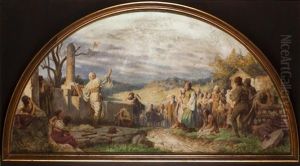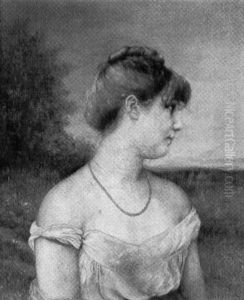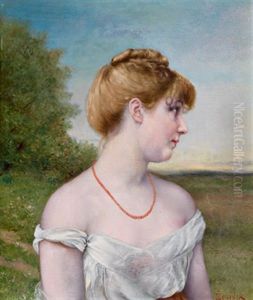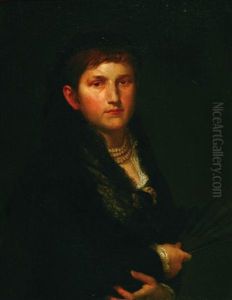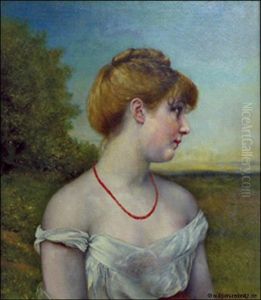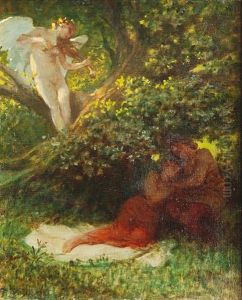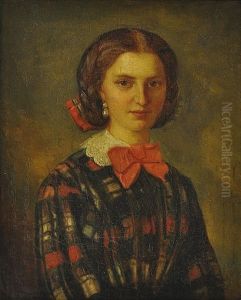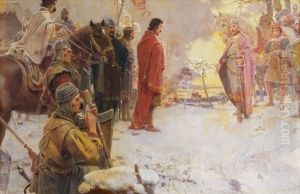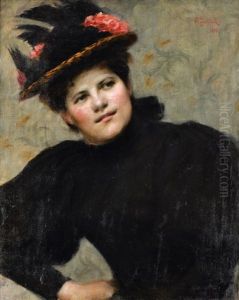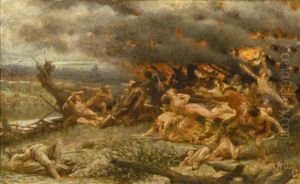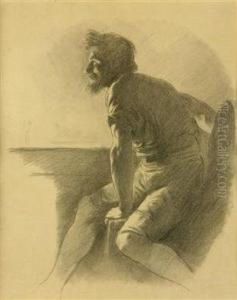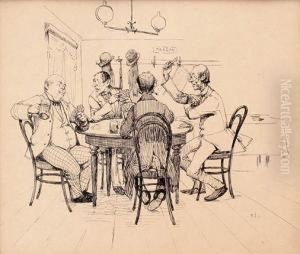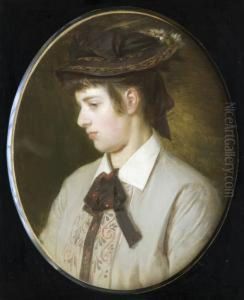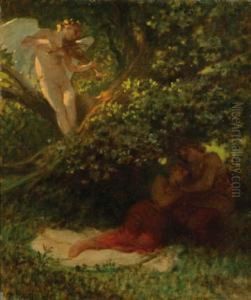Frantisek Ii Zenisek Paintings
František Ženíšek was a prominent Czech painter and representative of the National Theatre generation, a group of artists who played a significant role in the Czech National Revival movement in the late 19th century. Born on May 24, 1849, in Mirotice near Písek, in the Austrian Empire (now the Czech Republic), Ženíšek grew up during a period of intense nationalistic fervor, which influenced his artistic direction.
After initial studies at the Prague Academy of Fine Arts, Ženíšek further honed his skills at the Academy of Fine Arts in Munich, which was a major center for art students from the Bohemian lands. He was particularly influenced by the work of Alexander von Wagner and the historical painting tradition. The Munich period was crucial for his artistic development, and he started to gain recognition for his work.
Ženíšek's early career was marked by historical and allegorical paintings, but he is most famous for his monumental works in the National Theatre in Prague. His contributions there are considered masterpieces of Czech historical painting. One of his most notable works is the curtain for the National Theatre, depicting the apotheosis of the Czech nation, which he completed in 1883. Unfortunately, this work was destroyed by fire the same year, and Ženíšek had to recreate it, a task that he completed with great success.
Throughout his life, Ženíšek was also a respected portraitist, capturing the likenesses of many important figures of Czech cultural and social life. He was also involved in teaching at the Prague Academy of Fine Arts, where he influenced a new generation of Czech artists.
František Ženíšek died on October 13, 1916, in Prague. His death marked the end of an era for Czech art, but his legacy continued through his works and his impact on the development of modern Czech art. Ženíšek's work is characterized by a strong sense of nationalism, a masterful use of color, and a dedication to portraying the Czech nation's history and legends.
